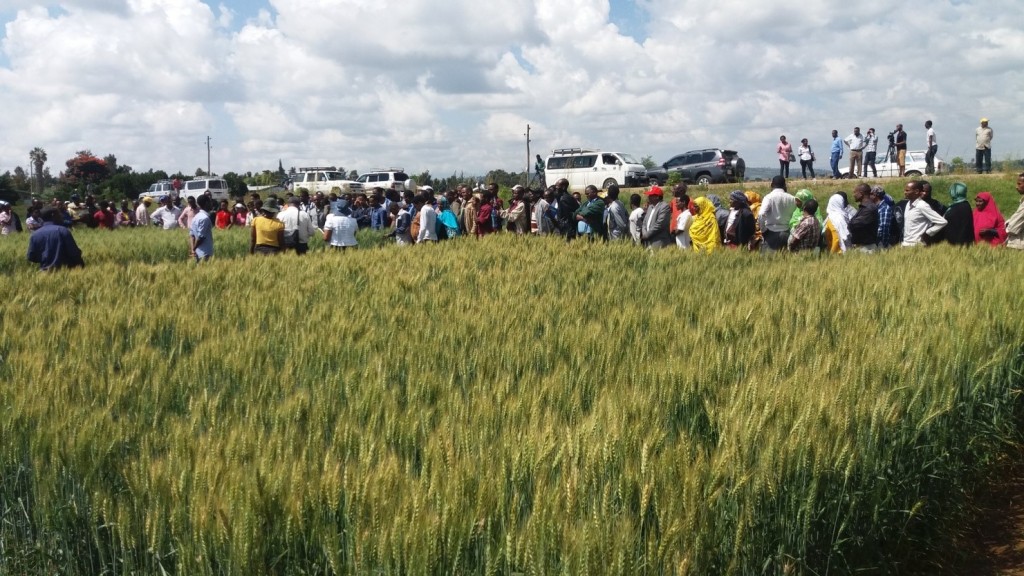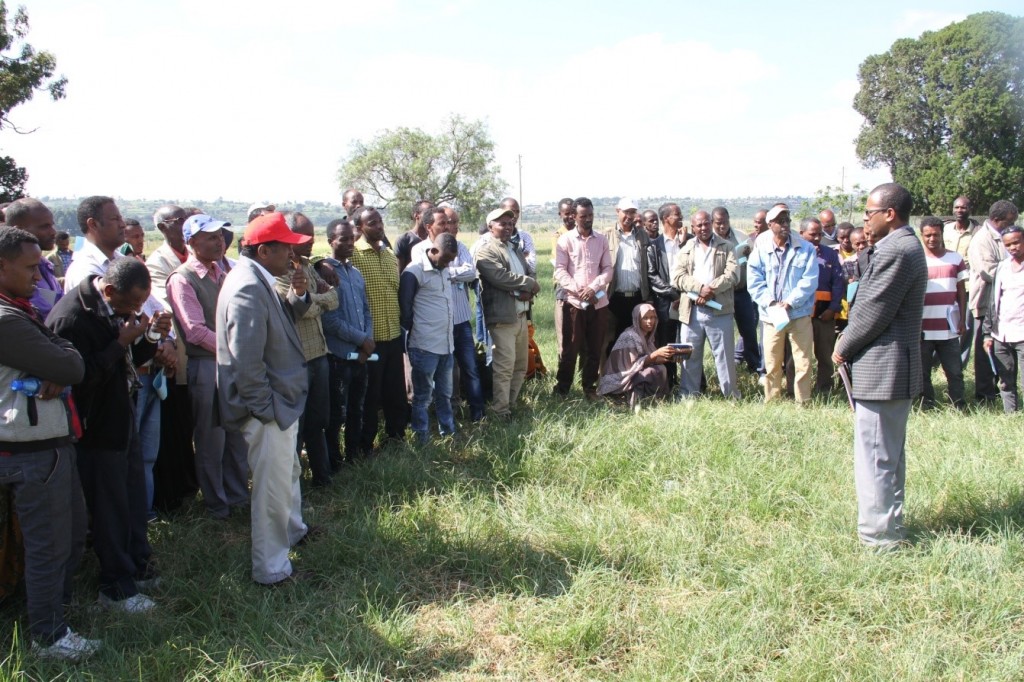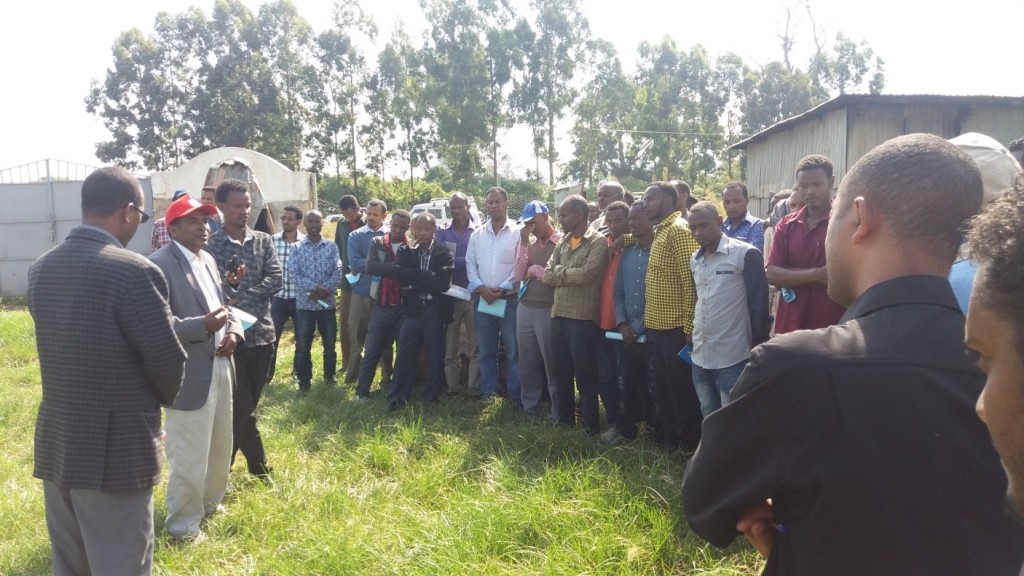Haramaya University Research Office conducted Field’ Day in the University’s compound on 13 October, 2016. This year’s Field Day was attended by mass of stakeholders that include farmers, researchers, development Agents (DAs), delegates of regional, zone and woreda offices of agriculture, agency livestock and fisheries development and administrators, academic and administrative staff members of the University.

The guests were given a tour of the research fields and farms of the University and introductions and explanations were given on what kind of activities the University is involved in. The Field Day mainly involved demonstrating portions of the works that are being conducted in the University and showing the possible potential of linkages at different levels with as many stakeholders as possible.
A welcoming speech was given by Dr. Jemal Yousuf, Vice-President for Research Affairs; and an opening speech by Prof. Chemeda Fininsa, the University’s President. The President, in his opening speech, talked about the relevance of research field day and advised, “It shouldn’t only be a scheduled event that we do year after year. Research field days should have something new and special to be shown every time they’re held.” Prof. Chemeda stressed the idea that new discoveries should be demonstrated so that farmers and stakeholders know the University is committed to addressing problems of our society.

Prof. Chemeda further noted that Field Days are good opportunities to evaluate how effective new technologies are before they are disseminated to the public. Field days are also helpful in distributing and demonstrating technologies in FTCs and disseminating the effective ones for scaling up. As Prof. Chemeda said, “Through research, everything that has been on paper will be implemented. And the University is not only limited to agricultural research. We have researches in health, science and technology, business and economics, and information technology. This (today’s Field Day) only shows the portion that can be seen on the ground.” In a similar note, researchers are encouraged to conduct researches that are geared toward solving our economic, social and environmental problems.

Following the President’s speech, participants were given the chance to make a guided visit of many of the research activities that the University is undertaking on campus (Rare Research Station). The visit started with the sheep research station followed by beef research as components of the livestock research efforts. Then, the crop research followed in the order of cereals research specifically on wheat, highland pulse research program like faba bean research, lowland research programs like common bean research, potato seed multiplication activity, vermicomposting technology, sorghum research, maize research, potato research, shallot research, and sprinkler and drip irrigation technologies.

In the discussion session held in the afternoon, the guests raised issues of bridging the skill gap of farmers in dairy housekeeping, poultry, and beekeeping; the lack of reachability of livestock research; expanding fenugreek research; and the reach of the University’s research sphere. Women were encouraged to participate in the discussion, and raised the continuity of the University’s support in addressing the need of poor women in areas of chicken and goat rearing. The discussion was chaired by Dr. Jemal Yusouf, and university representatives gave feedbacks on the raised issues and stressed the University is doing what it can with the capacity that it has. Dr. Jemal and the University’s researchers attempted to address the issues raised by the participants in a satisfactory way. Towards the end of the discussion, Dr. Mengistu, Director for the Research Extension and Publications Directorate, pointed out that regional administrations, woredas’ and kebeles’ agriculture, fishery and livestock offices have the responsibility of creating linkages with the University to address the many issues of the area. He said, “It is not only the responsibility of Haramaya University; it is every stakeholders’ responsibility.” It was pointed out that farmers should not only be expectants but collaborators in bettering their situations and economic status.

It has also been mentioned that even though it is not in a grand scale, researchers are conducting research on fenugreek (“Abish” in Amharic and “Hulbata” in Afan Oromo), and will disseminate the results in the near future. Another point raised by farmers was the scale of livestock research; representatives from HU said this is not to say there is lack of research rather it take years to produce and disseminate livestock research results; it is not as “easy” as crop production and dissemination. But the University has planned to do better in this regard and will collaborate with farmers and the regional administration. Concerning trainings, it was stated that the University has been giving trainings to DAs, selected farmers and extension workers. These will also continue to the capacity of the University.
In response to the women’s request, it was noted that the University, in its current year’s plan, has an intention to work with needy women on small-scale poultry production including poultry feed production which is often among the challenges to sustain poultry business.
